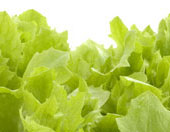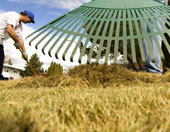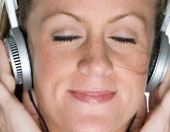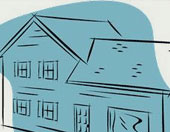
Overcoming afternoon fatigue
Posted in General Health & Wellness on March 7, 2010. Last modified on April 21, 2019. Read disclaimer.
It's well past lunch time yet its hours until quitting time and you are exhausted, too tired to concentrate. This is called the "four o'clock fade." The fatigue sneaks up and wipes you out for the rest of the afternoon.
Common causes include: lack of restful sleep, health conditions, stressors such as uncomfortable light or noise, relentless workload, boredom, or even overeating or consuming alcohol at lunchtime.
+ Free Shipping & Returns on Eligible Items.
(*Amazon's Top 100 list updated hourly.)
Here are DO's and DON'Ts for overcoming afternoon exhaustion:
Do:
- Get some sun: Go outside and soak in some light. Even in the winter, the sun can revitalize you. Winter tends to be the season people experience four o'clock fade the most so it makes sense to get outside as much as you can during the work day. Ten to fifteen minutes of light can make a significant difference in how you feel. If you're unable to get outside or get enough sun in the winter, invest in a lightbox to have at your desk. This can artificially supplement your exposure to natural sunlight.
- Manage your stress: talking with friends, joining a support group meditating, and other stress-management techniques can all help minimize energy-zapping stress and help lift the feeling of fatigue. Keep a joke book handy since laughter is a great stress-reducing energizer. You will find free, guided, online, mini meditations at UCLA Mindful Awareness Research Center, The Chopra Center for Wellbeing, Silent Unity Prayer Ministry and on youtube.com.
- Cut back on your workload, family commitments and social obligations: Focus on completing the most important tasks first and stepping back from -- or asking for the help of others -- with the less urgent or important activities.
- When you are outside, get some brisk exercise: Walking briskly will get your blood moving and allow you to get fresh oxygen to your cells. You will also be soaking up light when you walk outside at mid-day.
- Do shoulder rolls: rolling the shoulders loosens the muscles that are associated with tension, which plays a role in fatigue.
- Practice deep breathing: While closing your eyes, breathe deeply as you focus on your breath. Inhale as you count to four; hold it a few seconds at the top of the breath; and then exhale to the count of four. Repeat this three more times. This technique, called four-square breathing, is a way to relax your mind and feel revitalized.
- Do a deep forward fold and let your arms dangle: One yoga pose that works well for revitalizing you is to relax your legs with feet at shoulder width apart with knees bent slightly. Gently fold forward at the waist, letting your arms and head dangle freely. Release all muscle tension as you do this pose. This position allows blood to get to the brain and is excellent for beating fatigue. Since many of us sit all day at our computer, simple back-bends may also help.
- Smell essential oils: some essential oils, especially peppermint, have been proven to increase alertness. Put a few drops on a tissue or hanky and sniff the vapors throughout the day for a natural "high" and invigorated feeling!
- Eat a balanced breakfast with plenty of whole grains and protein: The complex carbohydrates in whole grain foods burn slowly, feeding the fire and producing energy throughout the day.
- Try Sublingual B12 supplement: Many people report better concentration, memory and mood from taking a B12 supplement when fatigue sets in. It can provide a natural pick-me-up.
- Eat small high-protein snacks throughout the day: To keep your blood sugar steady, avoid skipping meals early in the day and setting yourself up to eat a big lunch. Fatigue can come after eating too much at one time for lunch. If you eat sensible snacks and a light lunch you are less likely to "crash" in the afternoon. Good snack choices include yogurt, nuts like almonds, and string cheese.
- If needed, consider taking a half-hour nap: Sleep no longer than 30 minutes, however, or the brain falls into deeper stages of a sleep; causing grogginess when you awake. Your goal is to fall into only the early stages of sleep.
- Consider getting your vision checked: Eye strain can certainly contribute to fatigue.
- Open a window: Experiencing the fresh air and invigorating sounds and smells of the outdoors are like a natural wake-up call.
- Practice good sleep hygiene at night: Go to bed at the same time and wake up at relatively the same time every day. Use the bed only for sleep and sexual activity. Keep the room dark and pets out of the bed, eliminating all distractions. If you can't sleep for more than 20 minutes, get out of bed and do something else. Return to bed when you begin feeling drowsy. Don't lie in bed ruminating for long spells. Consider taking a hot bath. As you get out of the tub, your body begins to cool dramatically. A drop in body temperature is a signal to the brain that it's time to sleep.
- Stay well hydrated: Drink water regularly throughout the day.
Don't:
- Reach for sugary snacks or sodas: Although it is tempting to boost your energy instantly with sugar, this can cause a blood-sugar crash later.
- Drink coffee, sodas, or other caffeinated beverages late in the day: Caffeine in the afternoon can cause you to have a restless sleep at night, perpetuating the cycle of fatigue. Alternatives to consider are mate tea and chi tea. These have less caffeine than coffee but give many people a lift.
- Don't smoke since nicotine is a stimulant that prevent you from sleeping soundly.
- Avoid alcohol at lunchtime since alcohol is a sedative.
- Don't ignore extreme fatigue. You may suffer from iron deficiency or some other medical condition. If fatigue continues day after day, consult with your physician.
Sources (accessed 3/7/2010) include:
http://www.health.harvard.edu/healthbeat/HEALTHbeat_060706.htm

 How to prepare if you have pets and are going to have a baby
How to prepare if you have pets and are going to have a baby Tips for battling afternoon fatigue
Tips for battling afternoon fatigue Organic Gardening infographic
Organic Gardening infographic Tools for determining your risk of disease
Tools for determining your risk of disease Getting a jumpstart on spring gardening
Getting a jumpstart on spring gardening Fall gardening tips and tricks
Fall gardening tips and tricks Composting kitchen and yard scraps
Composting kitchen and yard scraps How music and laughter can effect our health
How music and laughter can effect our health Simple to build, Do It Yourself standup desk
Simple to build, Do It Yourself standup desk Steps for keeping your eyesight healthy as you age
Steps for keeping your eyesight healthy as you age Guide to growing purple sweet potatoes
Guide to growing purple sweet potatoes What's radon in the home and why should I be concerned
What's radon in the home and why should I be concerned Simple and healthy smoothie recipes
Simple and healthy smoothie recipes What you can do to keep your Immune System strong
What you can do to keep your Immune System strong Gardener's guide to growing strawberries
Gardener's guide to growing strawberries Causes of stress and how to deal with it
Causes of stress and how to deal with it Poisonous plants in your home and garden
Poisonous plants in your home and garden